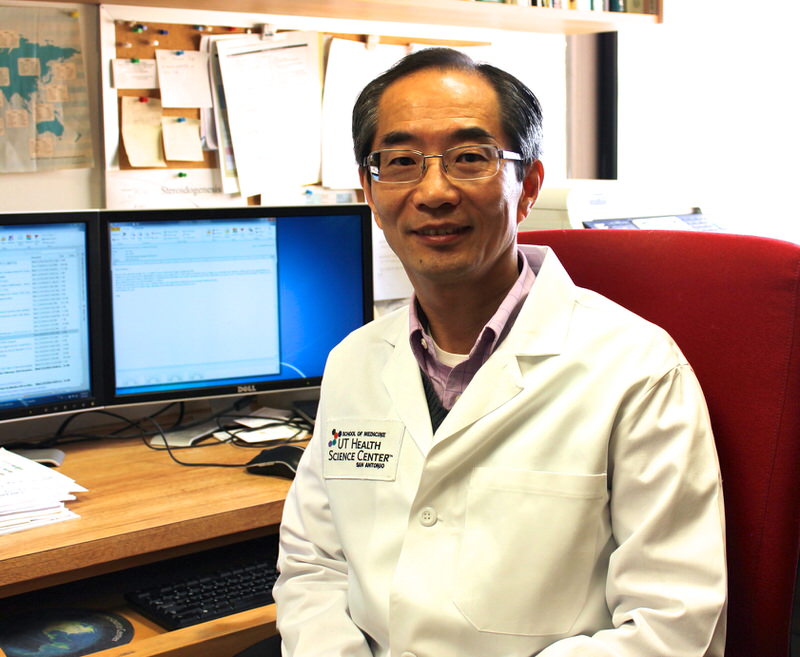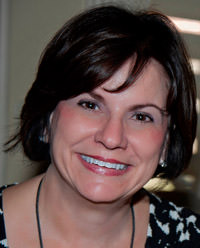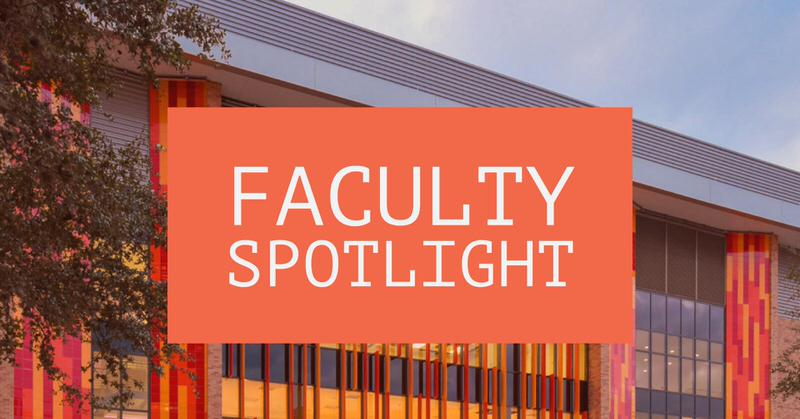Faculty Spotlight: 12 Questions With Dr. LuZhe Sun
Dr. LuZhe Sun is a professor in the Department of Cell Systems & Anatomy. He is also the director of the NIH/NCI T32 Cancer Biology Training Program and Associate Director for Translational Research at the Cancer Therapy & Research Center. In addition, he was named a Dielmann Endowed Chair in Oncology.
 1) Please tell me about yourself.
1) Please tell me about yourself.
I grew up in my mother’s hometown in a south China province called Zhejiang, which is symbolized with one Chinese character as “Zheæµ”. My father’s hometown was in a north China province, which is symbolized as “Lue²”. My grandfather named me “LuZhe” for me to remember my unusual roots of ancestry from two far apart provinces in China.
I got my chance to enter a college two years after my high school when the college entrance examination system was reestablished after the Great Culture Revolution.
I came to the U.S. in 1984 for my graduate study at Rutgers University was mentored by Dr. A. Farmanfarmanian. After receiving my Ph.D. in 1990, I went to Baylor College of Medicine for my postdoctoral training with Dr. Michael Brattain and was promoted to Research Assistant Professor when Dr. Brattain moved his laboratory to Medical College of Ohio in 1992. I obtained a tenure-track Assistant Professor position in the University of Kentucky Medical School in 1994 and was a tenured Associate Professor in 1999.
2) What brought you to UT Health San Antonio?
I was recruited to The University of Texas Health Science Center at San Antonio by Dr. Michael Brattain when he was the head of the molecular oncology group in the Department of Surgery in Fall 1999.
3) Tell me about your research interests and why you are passionate about this topic?
My laboratory has been studying the role of growth factor signaling in the progression and metastasis of various solid tumors including breast, prostate, colon, cervical, and ovarian cancers in the past two decades. Our goal has been to develop novel agents for blocking tumor progression. More recently, we have initiated investigation of the effects of aging and environmental xenoestrogens on the function and transformation of mammary stem/progenitor cells to test our hypothesis that the mammary stem/progenitor cells may initiate mammary tumorigenesis during aging or exposure to xenoestrogens and elucidation of cellular and molecular alterations of these cells may reveal targets for the prevention of breast cancer in high risk population.
Another recent focus of our research is on genetic and epigenetic alterations that are specifically associated with liver carcinogenesis of Latinos in South Texas. Our objective is to identify molecular biomarkers for the diagnosis, prognosis, and treatment of hepatocellular carcinoma (HCC) that causes a significant health disparity in South Texas Latinos in comparison to the general population in the US.
4) What do you want the public to know about your research? Why is your topic important?
 According to a study by Dr. Amelie Ramirez in our university, the incidence of HCC is about three times higher in Latinos than non-Latino Whites in the United States and is highest in South Texas Latinos. However, the cause is not known. As a faculty member in this minority-serving university, I am collaborating with other basic and clinical faculty members as a team to identify specific gene mutations and alterations of RNAs, proteins, and metabolites associated with HCC in S. TX Latino patients that will allow us and others to develop interventions to reduce this health disparity.
According to a study by Dr. Amelie Ramirez in our university, the incidence of HCC is about three times higher in Latinos than non-Latino Whites in the United States and is highest in South Texas Latinos. However, the cause is not known. As a faculty member in this minority-serving university, I am collaborating with other basic and clinical faculty members as a team to identify specific gene mutations and alterations of RNAs, proteins, and metabolites associated with HCC in S. TX Latino patients that will allow us and others to develop interventions to reduce this health disparity.
We are also bridging our cancer research with aging research leveraging the extensive expertise and literatures from our faculty in aging research to identify aging-associated alterations of mammary stem/progenitor cells and gene expression. Breast cancer places a heavy health burden on the U.S. women as the leading cancer with the second cancer-associated mortality. Our long-term goal is to develop therapeutic or dietary interventions for the prevention of breast cancer in women with high risk for breast cancer.
5) What is your favorite part of your job?
Working with my lab personnel and collaborators to come up with exciting hypotheses based on our preliminary data and literatures, and getting our discoveries published and validated by others are the most favorite parts of my job.
6) What is the most challenging part of your job?
Identifying innovative/high impact research projects and getting them funded are the most challenging parts of my job.
7) What do you like most about mentoring students?
Working with them as a team and learning from them.
8) How do you like to spend your free time?
Reading papers, watching news, and traveling.
9) What is the most helpful advice you’ve received?
Scientific exploration is both fun and rewarding if you are willing to tackle its challenges.
10) When did you start becoming interested in science?
After I entered college, my professors got me interested in life science.
11) Who has influenced you the most in life?
My grandfather kept telling me study while many intellectuals were sent to labor camps during the Great Culture Revolution. I learned to be modest from my grandmother, how to perform biomedical research and run a lab from my Ph.D. advisor, late Dr. A. Farmanfarmaian, and my postdoctoral mentor, late Dr. M. Brattain.
12) What do you consider your favorite hobby?
Traveling and fishing.
This article is part of the “Faculty Spotlight” series which showcases faculty at The University of Texas Health Science Center San Antonio.

